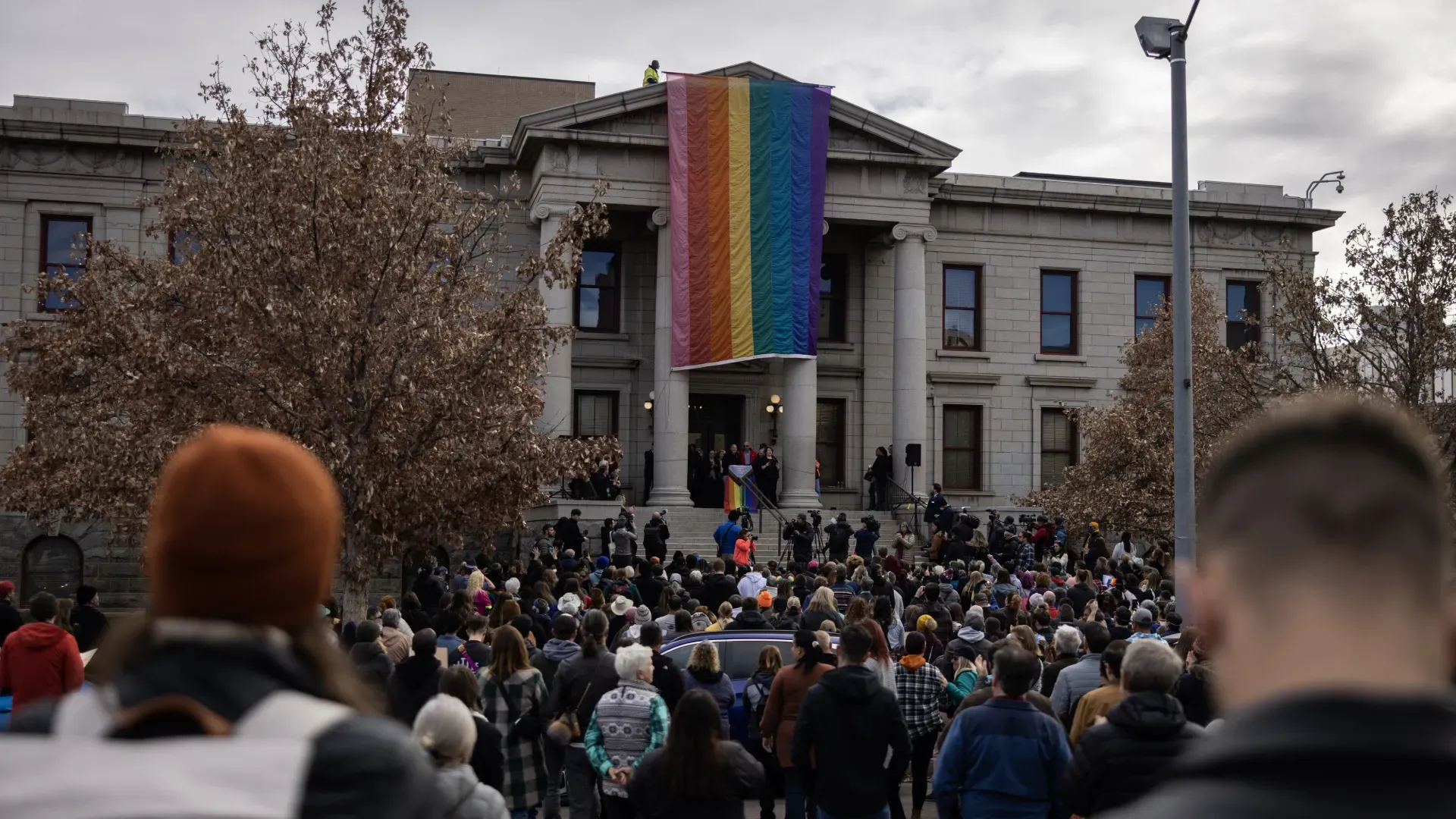This assessment was issued to clients of Dragonfly’s Security Intelligence & Analysis Service (SIAS) on 18 January 2023.
- Hostility to the LGBTQ+ community appears to be on the rise in the US
- Right-wing extremist groups will probably remain intent on disrupting LGBTQ+ events, but the potential for serious violence remains low
- The introduction of anti-LGBTQ+ legislation in various states is likely to contribute to a worsening legal environment for LGBTQ+ individuals
We have seen more frequent incidents of right-wing extremists disrupting LGBTQ+ events over the past year. Hate crimes targeting individuals because of their sexual orientation are also occurring more frequently, official data shows. And, there are signs that the legal environment for LGBTQ+ people in parts of the midwest and southeast will probably deteriorate in the long term. Still, there is a very low chance that identifiable LGBTQ+ people in the US will face discrimination or threats; our countrywide LGBTQ+ discrimination risk level remains low.
Assessment of extremist threat to LGBTQ+ events
Over the past year, we have seen persistent calls on online right-wing extremist channels to disrupt LGBTQ+ events, such as pride rallies and drag queen story hours. Users have shared details ahead of events and recommended how to disrupt them. In our analysis, the people behind this activity are motivated by anti-LGBTQ+ narratives that have been encouraged by right-wing extremists, conspiracy theorists and QAnon adherents. Those ideologies present LGBTQ+ people and their ‘lifestyle’ as a threat to society.
Right-wing extremists are more likely to target small, unsecured events. Recent precedent and our online monitoring suggests that drag queen story hours will probably remain particularly vulnerable to protests and disruption. The number of protesters at these events has grown from a couple of dozen in mid-2022 to several dozen by the start of this year. We have also observed a growing number of armed protesters and counterprotesters, based on our monitoring of these incidents. But extremists have at most fought with police, attendees or counter-protesters.
Despite the rising motivation among right-wing extremists to disrupt LGBTQ+ events, they do not appear intent on killing or seriously injuring attendees. This is because right-wing extremists – despite seeking to intimidate people – have rarely carried out physical or armed attacks against these events. The majority of the online chatter we have seen has not incited violence and the authorities have not issued any warnings of specific threats. But in its most recent terrorism advisory, the DHS has warned about the potential for targeted violence against the LGBTQ+ community. In our assessment, the exposure of LGBTQ+ people across the US to targeted violent hostilities is still low.
Hate crimes occurring more frequently
The frequency of hate crimes targeting individuals on the basis of their sexual orientation has also been on an upward trajectory. Based on the latest FBI data, there were 1,132 hate crimes motivated by anti-LGBTQ+ bias in 2021, a 2% increase compared with 2020. But, this data most likely underestimates the number of incidents; around one-third of police departments did not provide any such data. Nor does the available data give much indication as to the perpetrators’ motivations. Despite underreporting from the authorities, independent studies also show that the frequency of these crimes is rising.
The types of hate crimes perpetrated against LGBTQ+ individuals appear to be becoming more violent. From 2020 to 2021, the number of such incidents that involved acts of intimidation dropped from 41% in 2020 to 31% in 2021, but acts of assault rose from 19% to 23%, based on the latest official data. And a shooting at a gay nightclub in Colorado on 19 November 2022, in which five people died, appears to have been driven by anti-LGBTQ+ bias, according to press reports. The suspect was reportedly charged with 305 crimes, including 48 hate crime charges.
Legislative environment worsening
The legal environment for LGBTQ+ people will probably also worsen over the coming year. According to the Human Rights Campaign, a major LGBTQ+ advocacy group in the US, in 2022, 23 states introduced bills that discriminate against LGBTQ+ individuals and 13 state legislatures (Alabama, Arizona, Florida, Georgia, Indiana, Iowa, Kentucky, Louisiana, Oklahoma, South Carolina, South Dakota, Tennessee, and Utah) approved such bills. LGBTQ+ legal conditions appear to be particularly fraught in midwestern and southeastern states, based on independent studies about where these types of law have been enacted.
We suspect that the introduction of anti-LGBTQ+ legislation will more likely than not contribute to rising safety risks in the coming year. According to several academic studies, the introduction of such laws stigmatises and vilifies communities, thereby raising the potential for them to be perceived as threats by the public. The studies also suggest that this dynamic creates an environment that normalises hate. While this will probably not always lead to violence, the overall safety of the LGBTQ+ community will probably deteriorate over the long term, in our analysis.
Image: A rainbow flag is draped over the Colorado Springs City Hall in honour of the victims of a shooting at Club Q in Colorado Springs, Colorado, on 23 November 2022; Photo by Chet Strange via Getty Images.




